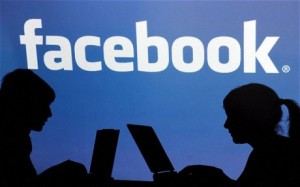Facebook buys Instagram for $1 bn
Facebook on Monday announced a billion-dollar-deal to buy the startup behind wildly popular smartphone photo sharing application Instagram.
The big ticket purchase was seen by some as a move by Facebook to strengthen defenses against Google and blazingly hot newcomer Pinterest in the weeks ahead of what promises to be a history-making stock market debut.
“For years, we’ve focused on building the best experience for sharing photos with your friends and family” – Facebook co-founder Mark Zuckerberg said in announcing the deal.
“Now, we’ll be able to work even more closely with the Instagram team to also offer the best experiences for sharing beautiful mobile photos with people based on your interests.”
Zuckerberg called the acquisition “an important milestone for Facebook because it’s the first time we’ve ever acquired a product and company with so many users” but promised it was a rare acquisition.
An Instagram application tuned to Apple’s iPhones, iPads, and iPod touch devices has been downloaded more than 30 million times since the first version was released in late 2010 by the San Francisco startup.
A version of the application tailored for smartphones power by Google-backed Android software racked up more than a million users in the 24 hours after its release last week.
After Kevin Systrom turned down the chance to join Facebook in 2004, he might have regretted the decision when the social network became one of the world’s biggest websites.
But he may now feel vindicated, after landing a 400 million dollars payday by selling the company he set up instead to the networking giant.
Mr Systrom (28) is founder and CEO of Instagram, which was bought by Facebook on Monday for a staggering 1 billion dollars.
And as he still owns around 40 per cent of the photo-sharing software company, according to Wired, he stands to pick up nearly half a billion dollars personally.
The app, which allows users to alter and post images on their smartphones and tablets, will be paid for in cash and Facebook stock. Facebook will complete its initial public offering of stock next month.
The service – used by 30million people, including celebrities Hilary Duff, Mandy Moore and Jessica Alba – is increasingly becoming a rival for Facebook, which also relies on people posting pictures.
The deal values the tiny firm as worth more than venerable business giants such as Barnes and Noble and the New York Times.
Its lucrative sale is a personal victory for Mr Systrom and co-founder Mike Krieger, who have built the firm up into a billion-dollar business in just two years, and with only 13 employees.
Mr Krieger, as owner of around 10 per cent of Instragram, is set to take away 100 million dollars from the deal.
There’s a lot of speculation today about why Facebook would spend $1 billion to acquire the uber-hip photo-sharing app Instagram. To some, it seems obvious; to others, it’s the biggest sign yet of a growing Web bubble. To me, it just raises question after question, and the biggest one is “why.” What does Facebook gain from buying Instagram? Let’s look at some of the possible reasons, shall we?
Users: Instagram has 30 million users and a potentially huge influx of more, thanks to its recent expansion onto the Android platform. Instagram CEO Kevin Systrom says he thinks Instagram should easily reach 100 million users – that’s significant engagement, for sure.
But Facebook doesn’t need users. Facebook has users – some 850 million of them. And while I’ve argued that Facebook’s growth potential is slowing, the social network could scoop up another 100 million global users with its eyes closed over the next year, especially as its global expansion increases. And I’m not sure Facebook is in the market for more users so much as it’s in the business of figuring out how to make money off those users. So far, Instagram represents more users, but not any more revenue: more mouths to feed, if you will. Facebook shouldn’t be after more un-monetized users, at this point.
Mobile: My colleague Rafe Needleman and others argue that mobile engagement is the biggest reason Facebook lusts after Instagram. A large (and growing) and super-engaged mobile audience and decent mobile uploading (which Facebook still lacks, for some reason): that must be it. Mobile is where it’s at, after all: go mobile or die.
That doesn’t feel right either. After all, mobile is both boon and bane for Facebook. Again, Facebook already has mobile users: in December 2011, it said 425 million monthly active users got to Facebook on a mobile device. It has mobile apps now on every platform – the fact that they’re not very good, in some cases, doesn’t mean they’re not in wide use. Facebook doesn’t have a problem with acquiring mobile users: it has a problem making money off them.
